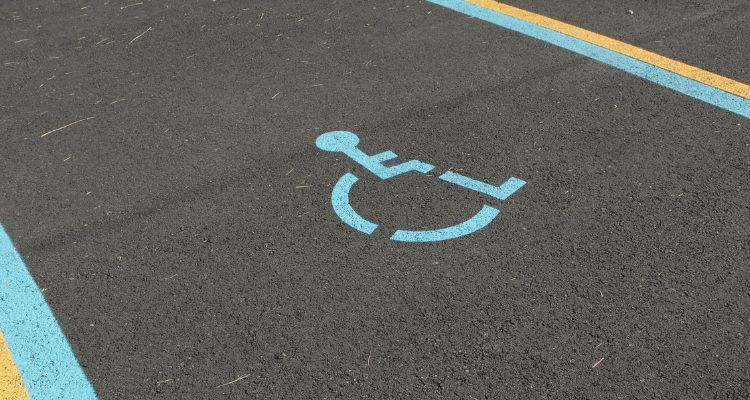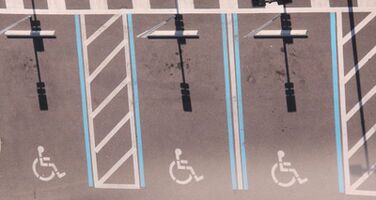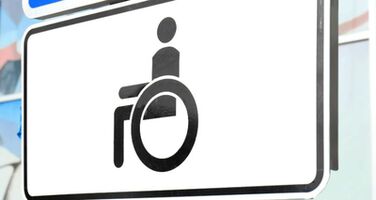
Discover the Benefits of Having a Handicap Placard in Kentucky
Disability tags, also known as disabled placards, are essential tools for individuals with disabilities. In KY, a disability tag opens doors to accessible parking and other accommodations that can make daily life significantly easier for people with limited mobility. Beyond just parking benefits, a disability tag ensures that you have safer, more accessible options when navigating public spaces, allowing you to live more independently and confidently. This article will explore the many benefits of having a handicap placard in Kentucky, provide insights into eligibility and the application process, and address common questions about using and maintaining your tag.
Introduction to Handicap Placards in Kentucky
In KY, a disability tag provides numerous benefits to individuals with limited mobility, enabling them to access public and private spaces more conveniently. Disability tags, regulated by the Kentucky Department of Transportation, come in the form of hang tags or special license plates. They help ensure that individuals with mobility challenges can park closer to building entrances and access the services they need with greater ease and comfort.
Types of Disability Tags Available in KY
Kentucky offers several types of handicap permits, each tailored to specific needs:
- Permanent Disability Tags: These tags are issued to individuals with long-term disabilities. They are valid for six years and must be renewed.
- Temporary Disability Tags: Designed for individuals with short-term conditions, these tags are valid for up to six months and can be renewed if the disability persists.
- Disability License Plates: These plates are available for vehicle owners who have permanent disabilities. They provide the same handicap parking privileges as a tag but are attached directly to the vehicle.
Understanding which tag is best for you will help you access the right benefits and comply with KY’s regulations.
Eligibility Requirements for a Disability Tag in KY
Eligibility for a disability tag in KY is based on medical conditions that impair mobility. To qualify, you must meet at least one of the following criteria:
- Inability to walk 200 feet without stopping to rest
- Severe cardiac, respiratory, or orthopedic conditions
- Visual impairments that make navigation challenging
- Use of a wheelchair, cane, or other assistive device for mobility
A licensed medical professional, such as a physician or chiropractor, must certify your disability. This certification is required as part of your application to verify your need for a disability tag.
How to Apply for a Disabled Permit in Kentucky
Applying for a Kentucky handicap placard is a straightforward process. Here’s how:
- Obtain the Application Form: Download the application form from the state's Department of Transportation’s website or pick it up at your local County Clerk’s office.
- Complete the Medical Certification: Have a licensed healthcare provider fill out and sign the medical certification section of the application.
- Submit the Application: Bring the completed form to your local County Clerk’s office. Temporary tags typically have a small fee, while permanent tags and plates are free.
Processing times may vary, but you can expect to receive your disability tag within a few weeks.
How to Obtain a Permit Online with HandicapMD.com
HandicapMD.com offers a convenient telehealth service that simplifies the process of getting your disabled parking permit by allowing you to:
- Sign Up: Visit the HandicapMD.com website and fill out the necessary form to schedule a consultation.
- Consultation: A certified doctor will assess your medical records and determine whether you meet the eligibility criteria.
- Medical Certification: The doctor will complete the certification section of the Application for Disabled License Plate or Parking Placard Form.
- Submit Your Application: Once your form is completed, submit it to the state's DMV either in person or by mail.
Why Getting the Permit Online is Beneficial
- Convenience: With HandicapMD.com, you don’t need to visit a doctor’s office. You can complete the entire process from home.
- Expertise: HandicapMD doctors specialize in understanding ADA guidelines and determining eligibility for disabled permits, ensuring a smoother process.
- Efficiency: The service allows for quick evaluations, helping you get your permit faster than traditional method.
Renewal and Replacement Procedures
Renewing or replacing your disability tag is a simple process:
- Permanent Tags: KY’s permanent disability tags need to be renewed every six years. Renewal notices are typically sent by the County Clerk, but it’s essential to check your expiration date to avoid lapses.
- Temporary Tags: Temporary tags expire after six months. If you still need a disability tag, you’ll need to reapply with updated medical certification.
- Replacing Lost or Stolen Tags: Report the loss to your County Clerk’s office, and apply for a replacement. You may need to provide identification and a small fee.
Keeping your tag up to date ensures uninterrupted access to accessible parking.
The Benefits of Having a Disability Tag in Kentucky
Having a handicap placard in Kentucky provides valuable benefits that can significantly improve the quality of life for individuals with mobility limitations. Here’s a look at the primary advantages:
1. Access to Designated Accessible Parking Spaces
The most significant benefit of a disability tag is access to accessible parking spaces. These spaces are designed for ease of access and are typically located close to building entrances, reducing the distance that individuals need to travel to reach their destination.
- Closer Parking: Accessible parking spaces are generally positioned near entrances, making it easier to enter and exit buildings.
- Enhanced Safety: Parking closer to entrances provides a safer environment, especially in poor weather conditions or in unfamiliar areas.
2. Extra Space for Mobility Devices
Accessible parking spaces provide additional room to accommodate vehicles equipped with ramps, lifts, and mobility aids like wheelchairs or walkers.
- Easier Access to Vehicles: The extra space allows individuals using wheelchairs or other mobility devices to enter and exit their vehicles more comfortably.
- Reduced Risk of Damage: Additional space reduces the risk of accidental damage to other vehicles when using a mobility aid or loading and unloading equipment.
3. Flexibility and Independence
Having a disability tag enhances independence by allowing individuals to navigate public and private spaces more freely. This flexibility is especially helpful for those who need to visit multiple locations or make frequent trips.
- Less Dependence on Others: With a disability tag, individuals can access necessary locations independently without waiting for help to find suitable parking.
- Easier Access to Services: By parking closer to facilities, individuals can attend appointments, shop, or run errands with greater convenience.
4. Exemption from Certain Parking Restrictions
In some KY cities, disability tag holders may be exempt from specific parking restrictions, such as time limits at metered spaces. While this varies by municipality, it’s a valuable benefit that can make parking in busy areas less of a hassle.
- Extended Parking: Certain cities allow disability tag holders to park beyond the regular time limit, which is helpful for individuals attending appointments or running errands.
- Reduced Costs: Some locations offer free parking for vehicles displaying a disability tag, although this varies based on local ordinances.
5. Recognition Across State Lines
KY-issued disability tags are recognized in most other U.S. states, allowing individuals to access accessible parking spaces while traveling.
- Interstate Accessibility: Disability tags are valid in other states, providing continuous parking access during out-of-state travel.
- Travel Convenience: Holders can use accessible spaces nationwide, making it easier to visit new locations without losing the benefits of accessible parking.
6. Benefits for Caregivers and Family Members
A disability tag can also make life easier for caregivers or family members who assist individuals with disabilities. It provides safe and convenient access to accessible spaces, simplifying the process of helping loved ones enter and exit vehicles.
- Simplifies Transportation: For caregivers transporting individuals with disabilities, having access to accessible parking spaces makes it easier to assist with entry and exit.
- Reduces Physical Strain: Caregivers benefit from the shorter distances, as they may need to handle mobility aids or support the individual with mobility challenges.
Parking Privileges and Accessible Spaces
The primary advantage of a disability tag is the ability to park in designated accessible spaces, which are usually located closer to building entrances. In KY, these spots are clearly marked with blue signs featuring the international accessibility symbol, providing a more convenient and safer option for individuals with disabilities.
Having access to accessible spaces ensures that you don’t have to navigate extensive parking lots or deal with uneven terrain, which can pose a risk for those with limited mobility.
Metered and Time-Limited Parking Advantages
Disability tag holders in KY may enjoy additional parking privileges when it comes to metered and time-limited spaces:
- Free Metered Parking: Many KY cities waive parking fees for disability tag holders at metered spaces, allowing you to park without worrying about time limits in designated areas.
- Extended Parking Times: Some cities provide extended parking times for vehicles with disability tags, although this can vary by location.
Always check with local authorities to confirm specific regulations, as they may differ from one city to another.
Use of Kentucky Disability Tags in Other States
KY disability tags are recognized across the United States, so you can use your tag when traveling outside the state. However, each state has its own regulations regarding metered parking and time limits, so be sure to familiarize yourself with local rules when visiting other states.
Most states honor KY’s disability tags in accessible spaces, but it’s always wise to check for any specific restrictions that may apply.
Rules for Proper Use of Disability Tags
To ensure that your disability tag remains valid and you stay compliant with Kentucky Department of Transportation regulations, it’s essential to follow these rules:
- Only Use the Tag When the Eligible Person is Present: The tag is valid only when the person with the disability is either the driver or a passenger.
- Display the Tag Correctly: Hang the tag on your rearview mirror when parked. Ensure the tag is visible from the front windshield.
- Remove When Driving: The tag should be removed from the rearview mirror while driving, as it can obstruct your view.
Following these guidelines ensures that your tag remains valid and accessible parking is preserved for those who genuinely need it.
How Disability Tags Enhance Independence and Quality of Life
Disability tags are instrumental in improving quality of life by promoting independence for individuals with mobility challenges. They eliminate the stress of finding suitable parking, reduce the risk of physical exhaustion, and empower individuals to visit places they may have otherwise avoided. Being able to access parking close to entrances means you can engage in more social, recreational, and essential activities with confidence and ease.
For many people, this level of accessibility is life-changing, allowing them to participate more fully in the community and maintain an active, engaged lifestyle.
Financial Savings Associated with Disability Tags
Having a disability tag can also result in financial savings:
- No Metered Parking Fees: In many areas of KY, disability tag holders are exempt from metered parking fees, which can add up if you frequently visit cities.
- Reduced Risk of Parking Fines: With access to designated parking spaces, you avoid the temptation to park in unauthorized areas, helping you avoid costly fines.
- Peace of Mind: Disability tags reduce the hassle of finding parking, allowing you to plan your day without worrying about accessibility.
While financial savings may be a secondary benefit, they add value to having a disability tag and contribute to a more stress-free experience.
Protecting Your Disability Tag from Theft or Loss
Unfortunately, disability tags can sometimes be targeted for theft. Here are a few tips to protect your tag:
- Remove and Store When Not in Use: When you’re not parked in an accessible space, remove the tag and store it in a safe place, like the glove compartment.
- Avoid Leaving It Visible: Avoid leaving your disability tag hanging when the vehicle is unattended.
- Personalize the Tag: Consider writing your name on the back of the tag in permanent marker to discourage theft.
Being vigilant with your tag can help ensure that it stays safe and available for when you need it.
FAQs About Disability Tags in Kentucky
Q1: Can a family member use my disability tag if I am not in the vehicle?
No, disability tags are non-transferable and can only be used when the individual to whom they were issued is in the vehicle, either as a driver or a passenger. Misusing the tag by lending it to others can result in penalties and revocation.
Q2: Do I need to pay for a disability tag in KY?
Permanent disability tags and plates are issued free of charge in KY, while a small fee may apply for temporary tags.
Q3: Can I use my KY disability tag in another state?
Yes, KY-issued disability tags are generally recognized in most other U.S. states due to reciprocity agreements. However, parking regulations may vary, so it’s a good idea to review the local rules when traveling to avoid potential issues.
Q4: Do I need a new medical certification to renew my permanent disability tag?
No, typically, permanent disability tags do not require new medical certification for renewal. However, temporary tags require updated medical certification each time they are renewed.
Q5: What should I do if my disability tag is lost or stolen?
If your disability tag is lost or stolen, contact your local county clerk’s office to report it and request a replacement. You may need to fill out a replacement form and provide identification.
Q6: Can I park in any designated accessible space with my disability tag?
Yes, with a valid disability tag, you may park in any accessible space on public or private property where designated.
Q7: Are there fees for obtaining or renewing a disability tag in KY?
Temporary and permanent tags are generally issued free of charge. However, disability license plates may require the standard vehicle registration fees.
Q8: How long does it take to receive a disability tag after applying?
Processing times may vary depending on the county clerk’s office, but most applications are processed within a few weeks. You can contact your local office for more specific information on processing times.
Q9: Can I have both a disability tag and a disability license plate?
Yes, in KY, individuals can hold both a disability tag and a disability license plate if they use multiple vehicles. This allows the flexibility of using accessible parking spaces regardless of which vehicle they’re using.
Q10: What should I do if I find my lost disability tag after receiving a replacement?
If you recover your original disability tag after receiving a replacement, return the original tag to the county clerk’s office to avoid issues with multiple tags.
Q11: Do I need to display my disability tag while parked in an accessible space?
Yes, when parking in an accessible space, your disability tag must be visible, typically hung from the rearview mirror. Remove it when driving to prevent obstruction.
Q12: Are there restrictions on parking in no-parking zones with a disability tag?
Yes, disability tags do not allow parking in fire lanes, loading zones, or other no-parking areas. The tag only provides access to designated accessible parking spaces.
Conclusion: Embracing Accessibility with a Disability Tag in Kentucky
Having a handicap placard in Kentucky offers invaluable benefits to individuals with disabilities, providing greater accessibility, convenience, and independence. Whether you need a temporary tag while recovering from surgery or a permanent tag for long-term mobility challenges, Kentucky’s disability tag program is designed to support the needs of eligible residents and their caregivers.
Using your disability tag responsibly ensures that accessible parking remains available for those who need it most, contributing to a respectful and inclusive community. By understanding the application process, eligibility requirements, and benefits, you can maximize the advantages of having a disability tag in KY and make your daily experiences safer and more convenient.
If you or a loved one is considering applying for a disability tag, refer to the guidelines provided by the Kentucky Transportation Cabinet and consult your local county clerk’s office for assistance.
.png)






